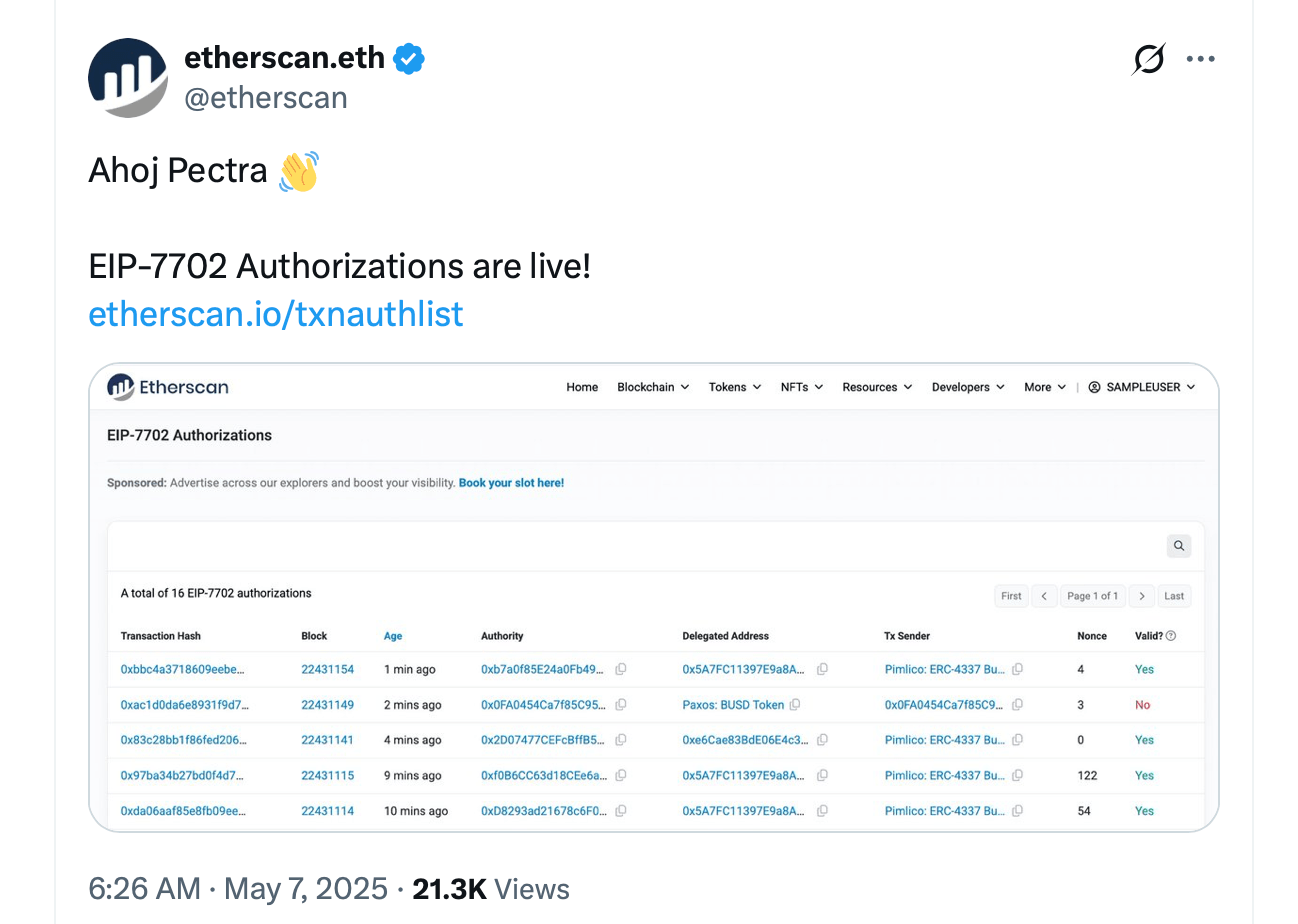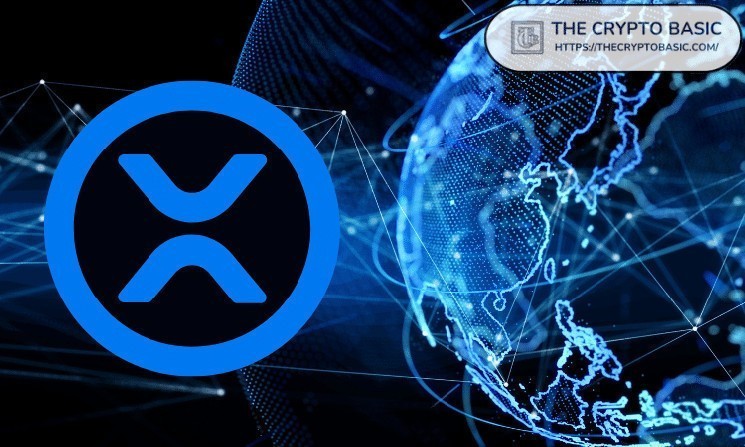Etherscan has launched monitoring tools for EIP-7702 authorizations following Ethereum’s Pectra upgrade, which introduced 11 improvement proposals to bolster scalability, security, and user experience.
Ethereum Users Gain Smart Contract Flexibility With EIP-7702 Post-Pectra
Ethereum’s Pectra upgrade, combining the Prague and Electra updates, went live on May 7, 2025, activating 11 Ethereum Improvement Proposals (EIPs), including EIP-7702. The proposal enables externally owned accounts (EOAs) to temporarily delegate transaction execution to smart contracts, blending user-controlled accounts with advanced smart contract functionalities.
 EIP-7702 introduces a “set code transaction” (type 0x04) to Ethereum, which assigns a delegation indicator to an EOA, redirecting its operations to a specified contract. Users authorize delegations via an “authorization_list” containing chain-specific data, with changes reversible via code-resetting transactions. This allows EOAs to batch transactions, sponsor gas fees, or set custom permissions without permanent conversion to smart contracts.
EIP-7702 introduces a “set code transaction” (type 0x04) to Ethereum, which assigns a delegation indicator to an EOA, redirecting its operations to a specified contract. Users authorize delegations via an “authorization_list” containing chain-specific data, with changes reversible via code-resetting transactions. This allows EOAs to batch transactions, sponsor gas fees, or set custom permissions without permanent conversion to smart contracts.
Key features include atomic transaction bundling for efficiency, third-party gas fee coverage, and granular permissions like token access limits. However, security risks persist: delegating to unvetted contracts may expose EOAs to exploits, while improper nonce management could enable replay attacks. Users must actively revoke delegations to mitigate risks.
The standard aligns with existing account abstraction frameworks like ERC-4337, ensuring compatibility with wallets and decentralized apps. EIP-7702 debuted on Ethereum’s Sepolia testnet and is now active on the mainnet following Pectra’s rollout.
Etherscan’s update lets users track active and historical authorizations under the “Authorization List” tab on address pages, providing transparency into delegated privileges.
As Ethereum transitions toward hybrid account models, EIP-7702 balances flexibility with user sovereignty, marking a pivotal step in evolving blockchain accessibility. Developers are urged to prioritize security audits and user education to maximize the proposal’s benefits.















Leave a Reply